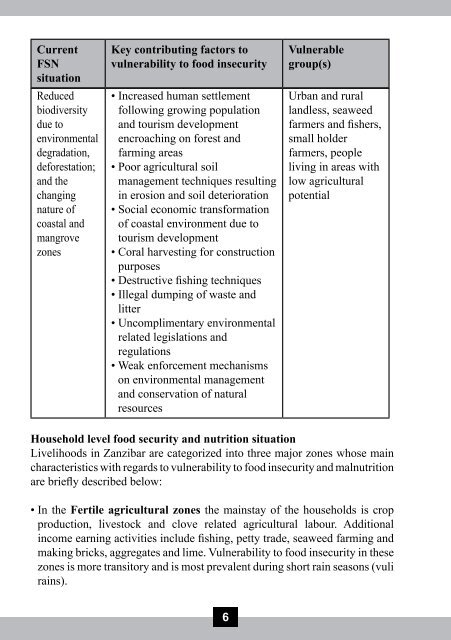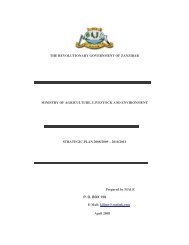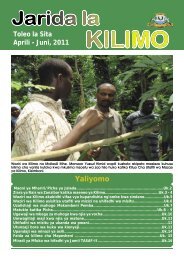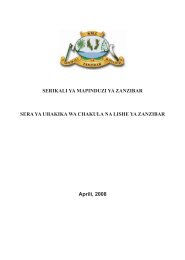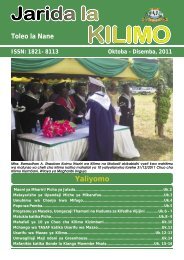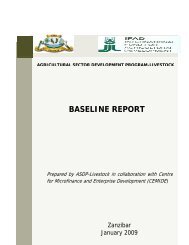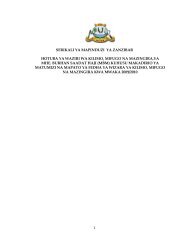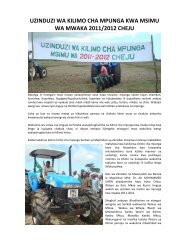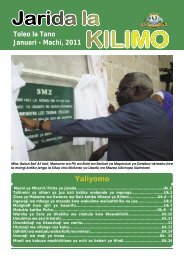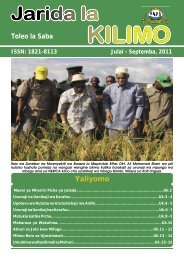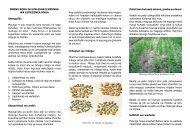ZANZIBAR FOOD SECURITY AND NUTRITION POLICY - Kilimo
ZANZIBAR FOOD SECURITY AND NUTRITION POLICY - Kilimo
ZANZIBAR FOOD SECURITY AND NUTRITION POLICY - Kilimo
You also want an ePaper? Increase the reach of your titles
YUMPU automatically turns print PDFs into web optimized ePapers that Google loves.
Current<br />
FSN<br />
situation<br />
Reduced<br />
biodiversity<br />
due to<br />
environmental<br />
degradation,<br />
deforestation;<br />
and the<br />
changing<br />
nature of<br />
coastal and<br />
mangrove<br />
zones<br />
Key contributing factors to<br />
vulnerability to food insecurity<br />
• Increased human settlement<br />
following growing population<br />
and tourism development<br />
encroaching on forest and<br />
farming areas<br />
• Poor agricultural soil<br />
management techniques resulting<br />
in erosion and soil deterioration<br />
• Social economic transformation<br />
of coastal environment due to<br />
tourism development<br />
• Coral harvesting for construction<br />
purposes<br />
• Destructive fishing techniques<br />
• Illegal dumping of waste and<br />
litter<br />
• Uncomplimentary environmental<br />
related legislations and<br />
regulations<br />
• Weak enforcement mechanisms<br />
on environmental management<br />
and conservation of natural<br />
resources<br />
Vulnerable<br />
group(s)<br />
Urban and rural<br />
landless, seaweed<br />
farmers and fishers,<br />
small holder<br />
farmers, people<br />
living in areas with<br />
low agricultural<br />
potential<br />
Household level food security and nutrition situation<br />
Livelihoods in Zanzibar are categorized into three major zones whose main<br />
characteristics with regards to vulnerability to food insecurity and malnutrition<br />
are briefly described below:<br />
• In the Fertile agricultural zones the mainstay of the households is crop<br />
production, livestock and clove related agricultural labour. Additional<br />
income earning activities include fishing, petty trade, seaweed farming and<br />
making bricks, aggregates and lime. Vulnerability to food insecurity in these<br />
zones is more transitory and is most prevalent during short rain seasons (vuli<br />
rains).


